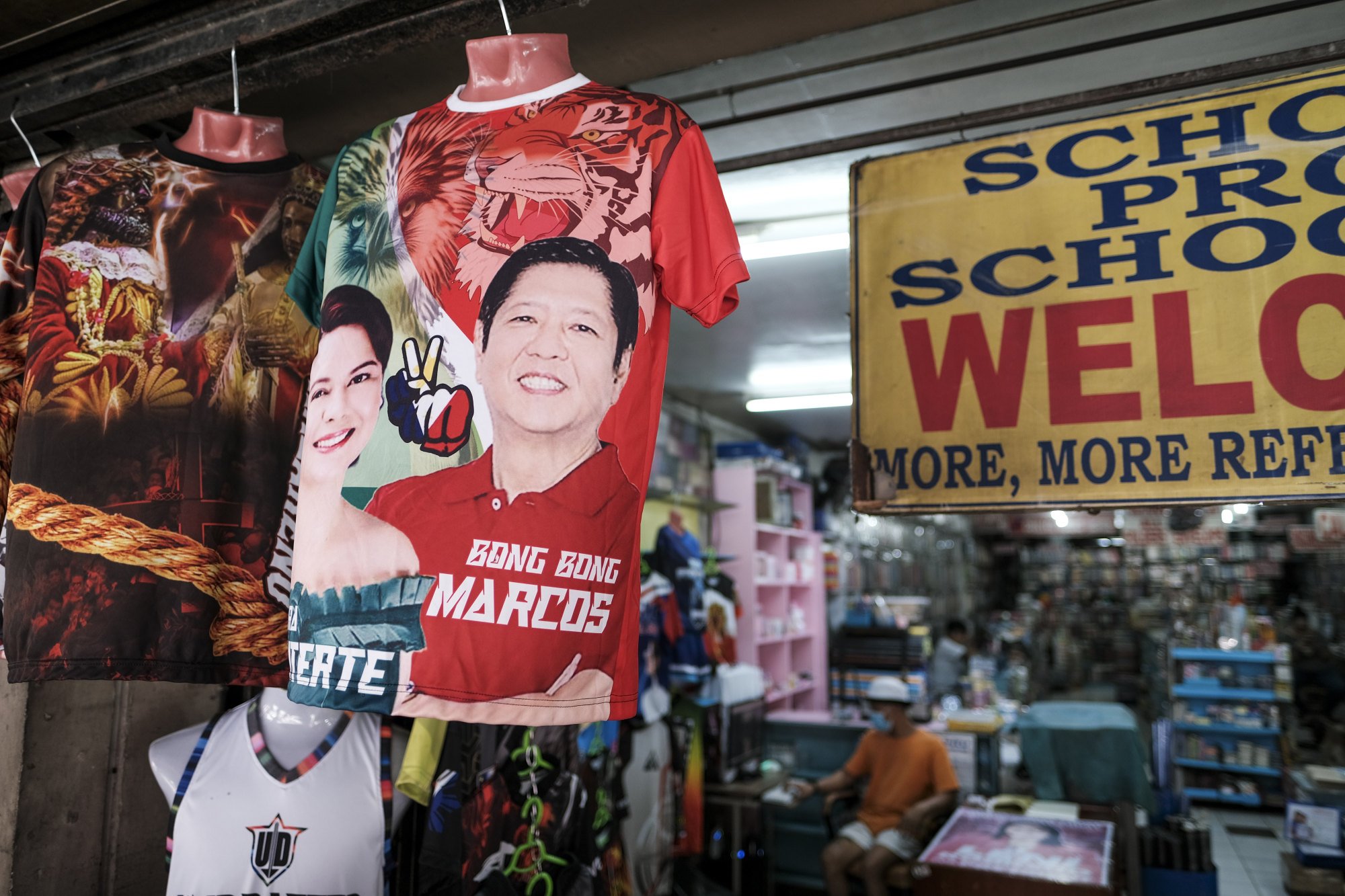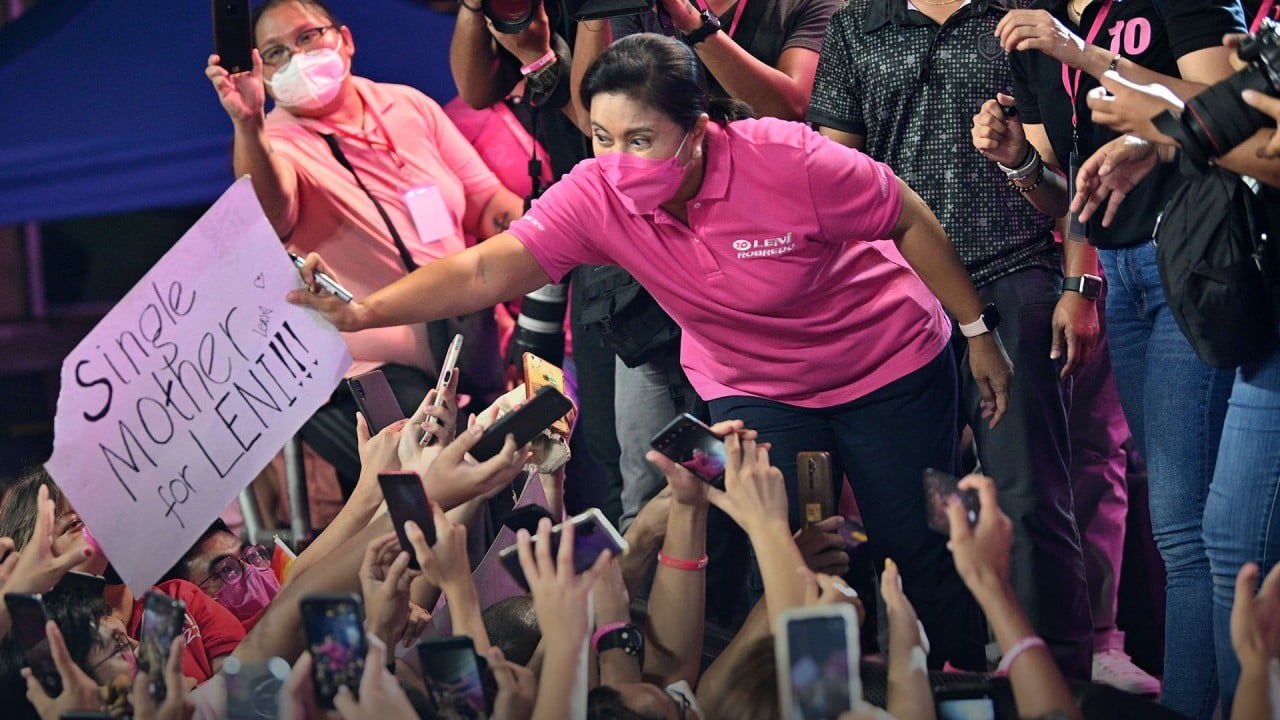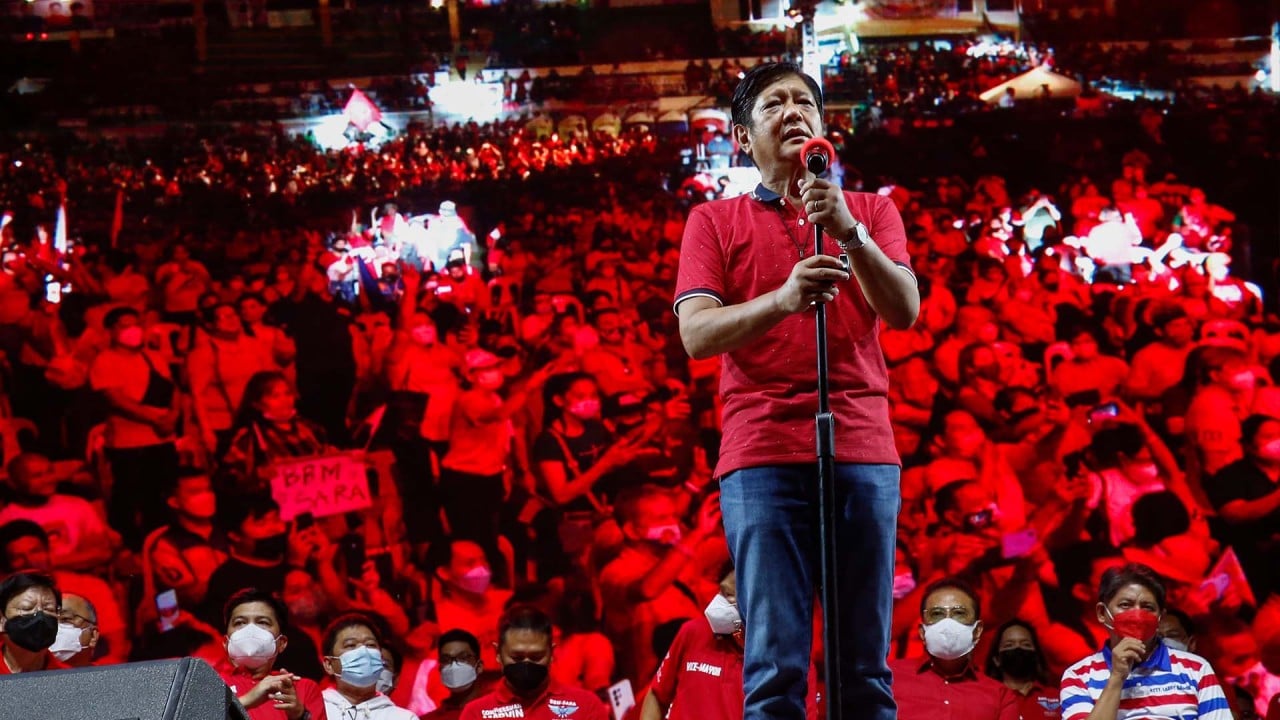
What will shape Philippines’ foreign policy post Duterte, and should China be concerned?
- Strategic calculus and domestic political considerations, rather than populist antics, are most likely to shape the next president’s foreign policy
- Both front runners are established mainstream figures with international ties and, unlike their predecessor, lack long-standing grudges against the West
“The two sides’ proper handling of the South China Sea issue has provided an important foundation for the China-Philippines friendly cooperation,” President Xi Jinping told his counterpart in Manila ahead of next month’s Philippine presidential election.
During his online summit with Philippine President Rodrigo Duterte, Xi emphasised how the status quo had benefited both countries and “effectively safeguarded regional peace and stability”.
Recent Philippine history is replete with wild swings in the country’s foreign policy. Former president Gloria Macapagal Arroyo oversaw a “golden age” of bilateral relations with China to lessen strategic dependence on the United States.
On the surface, presidential front runners Ferdinand “Bongbong” Marcos Jnr and Leni Robredo have radically different foreign policy agendas. While the former has indicated his preference for warmer ties with China, the latter has underscored the importance of cooperation with traditional Western allies.
Upon closer examination, however, it is clear that whoever becomes Duterte’s successor will face similar structural constraints on three levels. To begin with, public opinion and the position of the Philippine defence establishment, extending from key members of the military to veteran diplomats, will prove crucial.
At the same time, studies show most Filipinos, and the defence establishment, welcome pragmatic engagement with China. Recognising the Philippines’ limited defensive capabilities and with lingering doubts over US reliability as an ally, up to 67 per cent of Filipinos preferred closer economic ties rather than military confrontation with China, according to a 2017 Pew Research survey.

In a joint study with colleagues at the National Defence College of the Philippines, I discovered a similar trend among emerging leaders in the Philippine military. Even the top opposition candidate in this year’s elections has expressed a similar stance. Robredo has made it clear she is committed to avoiding direct conflict with China while welcoming mutually beneficial economic cooperation.
This brings us to the final crucial element, which is the predisposition of major powers such as the US and China as well as other key regional players, namely Japan, towards the next Filipino president. Unlike the outgoing president, neither Marcos nor Robredo have deep-seated personal grievances against the West.
Both candidates are also well-established, mainstream figures who have had extensive relations with a host of international players throughout the years, in contrast to Duterte.
The strategic predisposition of his successor is more likely to be driven by how foreign powers treat the next Philippine administration and what tangible strategic benefits they offer to the country.
In short, careful strategic calculus and domestic political considerations, rather than personal sentiments and populist antics, are most likely to shape the foreign policy of Duterte’s successor.
Richard Heydarian is a Manila-based academic and author of “Asia’s New Battlefield: US, China and the Struggle for Western Pacific” and the forthcoming “Duterte’s Rise”



